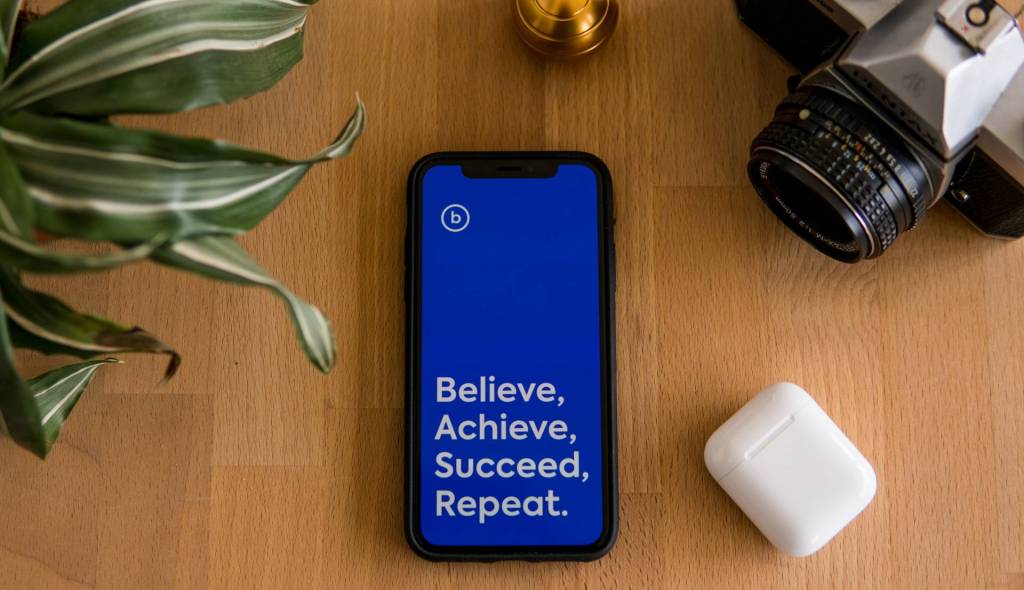Deal with your emotions first.
No matter where you go to college you can have a phenomenal experience and leverage your degree to get hired. Every college offers opportunities to broaden your knowledge base, expand your analytic abilities and gain real-world experiences through internships. Adopting a proactive, positive attitude towards learning, meeting new people and trying new activities will make a dramatic difference on how enriching your college life will be and how you can use it to advance yourself upon graduation.
If you were rejected from your “dream school” and it’s causing you angst, consider this fact: Some of the most famous people and biggest influencers in our society over time, known leaders in their field, including Warren Buffet and Steven Spielberg were rejected from their first choice of college and went on to become enormous success stories! Their massive disappointment from being rejected didn’t stop them from persisting and pursuing their interests. So take a deep breath and lighten up a bit… the success you have will largely depend on your attitude!
Maximize your collegiate experience: make yourself happy
Find social, cultural, political and/or sports activities to meet people you can relate to. Every college has a variety of clubs, organizations and associations that offer programs and leadership opportunities for students. From joining a sorority or fraternity, technology clubs, social action groups to writing for the student newspaper, religious organizations. There is something for everyone at most campuses that could enrich your life and help you meet friends with whom you share lots in common.
Most schools offer information in their student services departments and on their website about the variety of social, cultural, political and religious activities available on campus. If your curious to learn more about a particular activity, find one of the student officers of that group and ask to meet him/her for coffee. You might surprise yourself that there are so many great things to participate in. Your challenge will be narrowing down your choice to one or two so you have time to devote to your academics.
Develop your social contacts while in college
Once you’ve establish a circle of friends, you’ll probably feel more settled in your new environment; you should make an effort to branch out and also socialize with people who are different from you. Consider joining a social group like a sorority or a fraternity where you might meet people from other disciplines. If you’re an English major, you should try to meet people outside of your own discipline like Engineering or Economics students. Sharing a common experience with people in different departments will help you broaden your network.
Someday you might be looking for a job in social media marketing or in sales. You never know when an engineering firm might need a social media marketing person or when a computer software engineer might need a salesperson. Keep an open mind to fostering relationships with students of all stripes and skill sets.
Try to learn from the best professors
You can also get ratings of professors online. Keep in mind that these ratings might be biased towards the extremes. Students who post ratings could have strong biases based on their personal experience with that professor. If they did very well in his course she might give him a high rating but if he did poorly he might give her a lower rating.
Your college counseling office might also offer a list of most well-known professors who are often teaching in your school’s most esteemed departments. You can ask the question, “Which department is most highly regarded by alumni and donors?” Then try to find a class or several classes in this department that genuinely interest you and choose a recommended professor. These professors are frequently the gatekeepers to internships and jobs so be sure to make a positive impression on them. Show your interest in his/her subject by making thoughtful contributions in class discussions. This could help you stand out and help you become memorable to her if you ever need a favor for getting an internship.
Develop a plan to get internships
Simply Hired and Workingsports are both examples of great websites that could help you find an internship that could eventually lead to a job. In addition to these websites, career experts still say that the best way to find an internship or a job is using what’s called “warm contacts,” or people you actually know. If you get to know a professor s/he could become your ‘warm’ contact. Many professors hold jobs and careers outside of the University. These people are often happy to assist students when it comes to finding an internship at their firm. It will be your job to identify these professors and ask them to be your mentor. The old adage, “ you won’t know unless you ask” applies here. You have nothing to lose by asking. But if they agree to help you, you have lots to gain.
Choose a major you love and ‘minor’ in something practical
If you’re anxious about not knowing what your passion is and you don’t have any idea about what you want to major in – join the club. The vast majority of people who start college and don’t know what they’re passionate about. I suggest you don’t invest your energy into pursuing a passion as the pursuit of finding one’s passion can result in undue stress and anxiety. Just because you know your passion from an early age does not mean you will be happier than those who discovered it much later in life.
In order to find satisfaction in life, I recommend that you engage in some introspection and research on what a day in the life of someone is truly like in the job and in the city you esteem. I also urge you to consider what author, Cal Newport says about following your passions. Passion is elusive… in the stories of people who end up loving their work: after they develop rare and valuable skills they then use these skills as leverage to take control of their career path, often veering far off the standard trajectory.
Pick a major in an area that you find most natural and interesting and a minor in a subject that will give you practical skills. There should be some connection between college and your future career. This will reduce your anxiety later as you come closer to graduation. It doesn’t mean that college should be a strictly vocation based experience, but a savvy student will use it as a time to explore and ask thoughtful questions to upperclassmen and to esteemed professors.
When searching for a major, you should consider many factors: Where do your strengths lie? Are you good with numbers? Do you enjoy research? Is writing a strength or do you tend to do better in the sciences? Are you energized working in a team or do you find more inspiration when you’re working alone? The answers to these questions can help you know yourself better and give you some data points to select a mentor and for choosing your major.
I suggest you try to offset what you love with what will round out your skills. Perhaps you would major in History and ‘minor’ in computer science. Or major in Economics and ‘minor’ in web development. If your school doesn’t offer the option of a double major or minors you can try to pick a major that will allow you to delve deeply into a subject you love (and that comes more easily to you) and take other classes that will give you hard skills. Hard skills are those that you could apply immediately in the work force e.g. communications, web programming, computer science, finance or accounting. If you’re strengths are in Engineering you may want to take an art history or English literature class. Balance what you love with some hard facts about majors that have been found to have worst ROI (return on investment)
This act of leverage requires courage, but can return great rewards. Building the skills that ultimately lead to a compelling career can take years of effort. You might try on several hats while in college and that’s ok. College is a time for self-discovery. Take advantage of opportunities to meet with experts in different fields and ask them about their work and their lifestyle. Then choose classes that are prerequisites for entering this field.
Minimize college debt
Take advantage of as many opportunities to access free money for college. Learn from financial gurus Mark Kantrowitz and Gen and Kelly Tenabe’s brilliant tips on how to reduce your expected financial debt load and some secrets to increasing your odds of landing a scholarship.
- Mark Kantrowitz, the Publisher of Fastweb.com and FinAid.org, the leading web sites for planning and paying for college offer great tips about financial aid, scholarships and student loans.
- The Gen and Kelly Tanabe Scholarship Program, named after Gen and Kelly Tanabe who are the award-winning authors of eleven books on admission and scholarships. Together the Tanabes were accepted to all of the Ivy League colleges and won more than $100,000 in merit-based scholarships to graduate from Harvard debt-free.
- They offer clever tips on how to get scholarship money for college. In SuperCollege.com you can search more than 2,2 million college scholarships and grants to find free cash for college. Their latest book, The Ultimate Scholarship Book 2014, tells you where to find the best scholarships, how to win the scholarships you find, how to write a winning scholarship essay and more.
Take advantage of free online support for coursework, especially in your most challenging classes. One of the most exciting advancements in education today is the innovation of Khan Academy, a non-profit educational organization, created in 2006 by American educator, Salman Khan, a graduate of MIT. With the stated mission of “providing high quality education to anyone, anywhere”, the website supplies a free online collection of more than 3,000 micro lectures via video tutorials stored on YouTube teaching mathematics, history, healthcare and medicine, finance, physics, chemistry, biology, astronomy, economics, cosmology, organic chemistry, American civics, art history, microeconomics and computer science. The instruction is outstanding and it allows students to learn material entirely at their own pace.
Codecademy is another widely used and terrific site that can teach a beginner to learn how to build great websites, games and apps.
The most resourceful students will gather all the information they can to find a University that matches their needs and positions them for success after graduation.
The truth is that your happiness, fulfillment and career success will largely depend on having the proper attitude. Students who are motivated to take full advantage of what’s available to them on and off campus will rise to the top upon graduation. The prerequisite for moving forward is letting go of the notion that getting into a certain school will determine your happiness. Focus on what you can control once you’re on campus like the classes you take, the professors you choose and the people you hang out with. This way you’re guaranteed to increase your chances for success and happiness no matter which school you attend.












